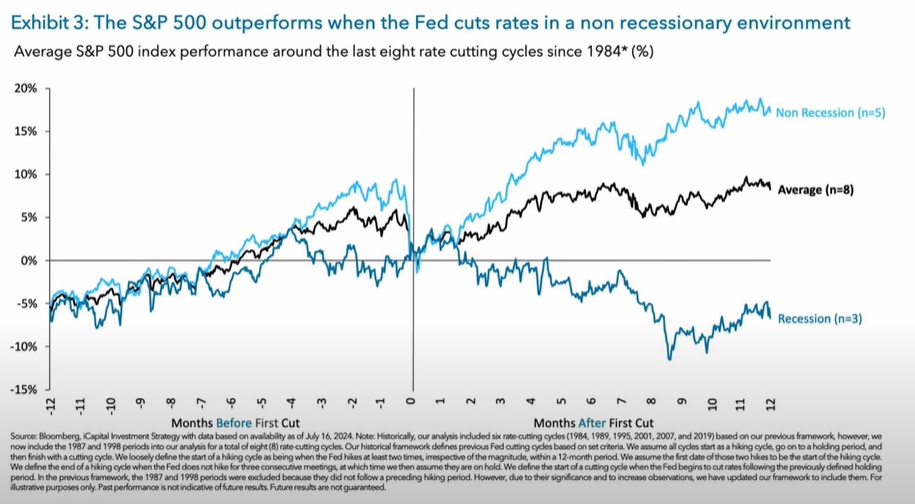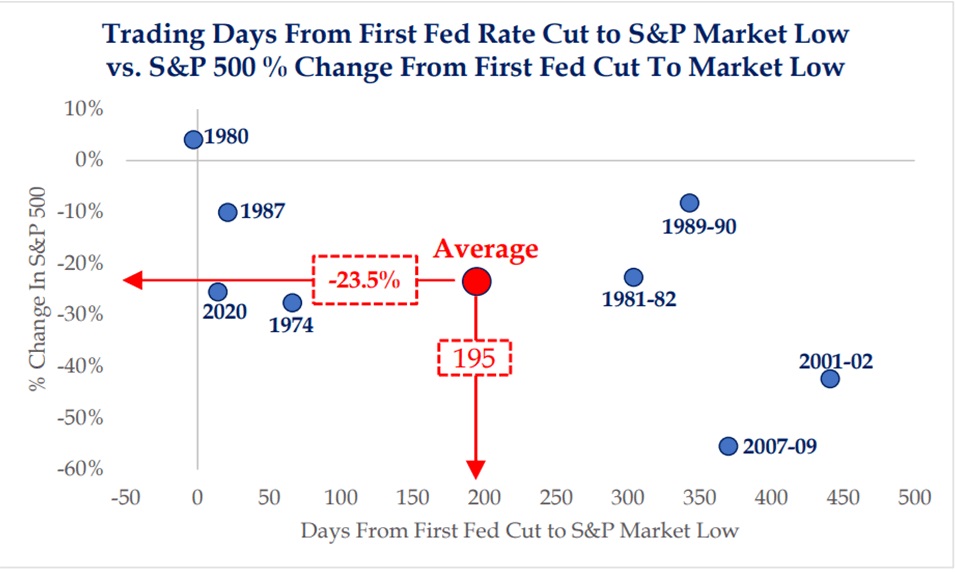*Interest rate cuts the death knell for our portfolio
I don't want to beat around the bush, the past has shown that after the first interest rate cut, statistically after 195 days the low of the "correction" on average of 23,5 % was formed.
How are you preparing for it? What is your exit strategy?
My thoughts on this:
- Keep an eye on GDP, inflation data, unemployment numbers to spot recession
- If first rate cut comes in September then:
- Most of the portfolio will be sold at the beginning - middle of December.
- Watch further and then gradually get out of the market by March
Crypto:
I am very concerned that this will also cause major problems in the crypto sector and that the bull run could suffer massively.....
What is decisive?
Soft-landing or recession... That is the crucial question in the whole affair!!!!
What is your opinion?


















